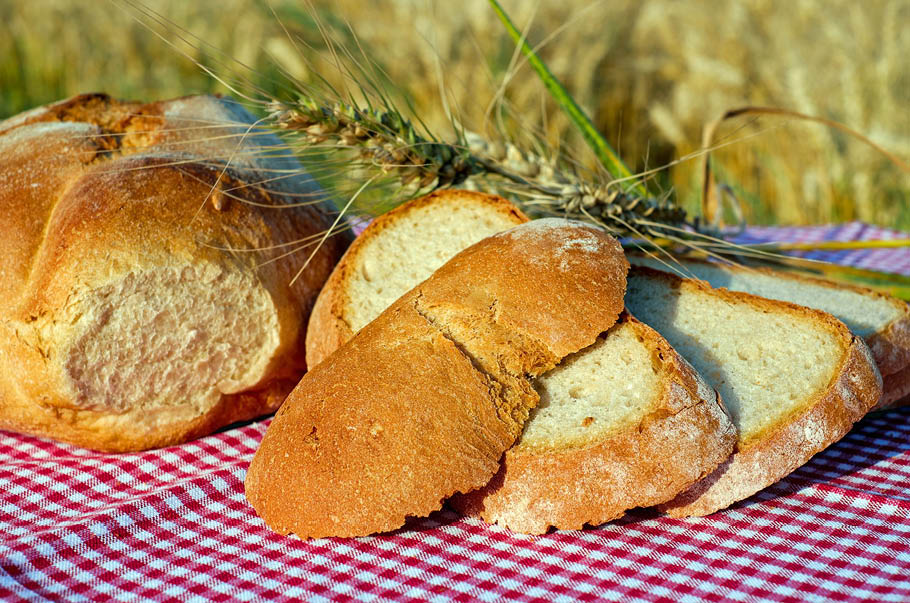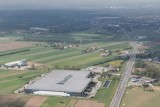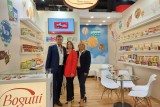2017 saw growth in foreign trade turnover. Agri-food products were primarily exported from Poland to the EU market. The value of exports of such goods to the European Union Countries in 2017 amounted to EUR 22.3 billion, 12% higher than the year before. The share of EU countries in Polish agri-food exports amounted to 81%, as in 2016.
Germany has remained the main trade partner of Poland. In 2017, exports to this country were 18% higher than the year before, totalling EUR 6.5 billion. Thus, Germany’s share in the value of agri-food exports from Poland grew by 1 pp, to 24%.
Export of agri-food goods to the members of the Community of Independent States increased by 10% in 2017, standing at EUR 1.3 billion. The value of agri-food products sold to the Russian Federation1 was EUR 463 million, 23% higher than the year before. The value of exports to Ukraine2 increased by 24%, to EUR 404 million. Among the CIS countries, increased proceeds were also recorded for exports to Kazakhstan (up by 18%), Moldova (24%) and Kyrgyzstan (40%). Lower revenues were obtained from agri-food exports to Belarus. Their value was EUR 296 million, 12% lower than in 2016.
Export to other non-EU countries increased from EUR 3.3 billion to EUR 3.8 billion (up by 13%). The largest recipient among these countries was the USA to which EUR 523 million worth of agri-food products were sold (a 40% increase).
In 2017, exports of poultry meat and offal (CN 0207) from Poland reached a level of 1.1 million tons and EUR 1.9 billion (in both cases, 9% more than in 2016).
Export of beef and veal in 2017 (CN 0201 and 0202) amounted to 401,000 tons, which was 11% higher than in 2016, and their value reached a level of EUR 1,4 billion, higher by 18%. Export of pork (CN 0203) from Poland in 2017 rose by 10% in comparison with 2016, to 479,000 tons, and the value increased by 21%, to EUR 966 million.
In 2017, Poland exported 380,000 tons of meat preparations3, 16% more than in 2016, with a 12% higher value of EUR 1,065 million. The year 2017 was characterized by further growth of revenue from sales of cereal grain and preparations. However, the rate of this growth was slight. In total, cereal products sent outside Poland were worth EUR 3.3 billion, 2% more than in 2016.
In 2017, 4.9 million tons of cereal grain4 was exported (24% less than in the previous year), reaching a value of EUR 858 million (20% less). The main cereal exported included wheat (57% of the volume), maize (24%) and rye (8%). The export value of cereal and flour preparations5 in 2017 rose by 13%, to nearly EUR 2.5 billion.
The Polish dairy industry experienced record-breaking revenues from dairy exports in 2017. In total, the value of exports of dairy products in 2017 stood at a level of EUR 2.1 billion, higher by 32% than the year before.
The volume of exports of vegetables6 and vegetable preparations in 2017 reached a level higher by 2% than in 2016, totalling 1.7 million tons. Proceeds from foreign sales of this commodity group amounted to EUR 1.5 billion, recording a 3% growth. 1.7 million tons of fruit7 and fruit preparations were exported from Poland in 2017, compared with 1.9 million tons the year before. The value of exports rose by 3%, to EUR 1.3 billion.
Apples have a dominant position in Polish fruit exports8. In 2017, the volume of apple exports reached 991,000 tons, which was 9% lower than in 2016. However, due to an increase in transaction prices of apples, the value of foreign sales of these fruit increased by 6%, reaching a level of EUR 337 million.
Imports of agri-food products to Poland
The value of Polish imports9 of agri-food products in 2017 reached EUR 18.9 billion compared with EUR 17.3 billion in 2016 (an increase by 9%). As in the previous years, the EU countries were Poland’s main trade partners in imports. In 2017, agri-food products with a total value of EUR 15.4 billion were imported to Poland from the EU (compared with EUR 14.2 billion in 2016). The share of the EU member states in the total value of agri-food imports to Poland dropped by 0.6 pp in comparison with 2016, reaching 81.4%.
The agri-food products, the imports of which generated the highest expenses in 2017 included: live animals, meat and preparations (EUR 2,493 million), fish and preparations, as well as fruit and preparations (EUR 1,957 million each), cereal grain and preparations (EUR 1,369 million), oilseeds and vegetable fats (EUR 1,290 million), as well as coffee, tea and cocoa (EUR 1,281 million). In 2017, total expenses on imports of the products mentioned above accounted for 55% of the value of imports of agri-food products.
National Support Centre for Agriculture













